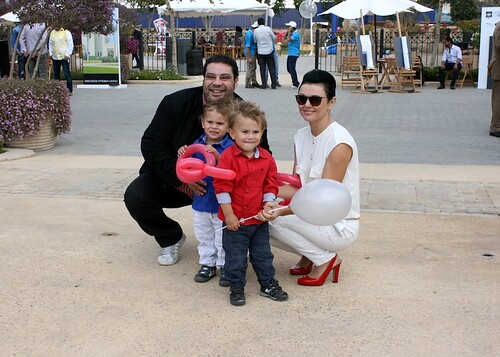As a Neutral Child Specialist, I often meet with parents who have not yet told their children about their decision to get divorced or unmarried. I encourage parents to create a We Statement that helps children understand what is going to happen without putting them in the middle of conflict between their parents.
Many books and articles written about children and divorce stress the importance of telling kids the divorce is not their fault, and they are not to blame. Here are three developmental reasons why I encourage parents not to use the words fault or blame in their We Statement.
1. Young children still mastering language can easily become confused about negation. These children may translate “it’s NOT your fault” to “it IS your fault.” Young children may believe this and internalize the idea without questioning it.
2. School-age children are developmentally focused on understanding fairness, causality and the dynamic of good guys vs. bad guys. If told they are not to blame, many children will wonder, “well then, who IS to blame?” With this thought, children can find themselves unhappily stuck in the middle.
3. Teenagers have even more knowledge and sophistication about relationship dynamics, and may feel compelled to learn and pass judgment on “the truth.” It is especially important to not introduce fault or blame in the discussion with teens.
What then is the alternative to using the words “it’s not your fault” or “you’re not to blame” if parents want to reassure their child that he or she had nothing to do with parents’ decision to get unmarried?
I recommend an affirmation such as, “You are the most important person in the world to us. We love you and cherish you, and will always be your mom and dad and take care of you.” These words communicate in a positive and supportive way what children need to hear from parents during this difficult discussion, and are an important part of an empathetic We Statement. Stay tuned for future posts about We Statements.
 Love and Divorce? You don’t hear those words together very often. After all, divorce means the end of love, doesn’t it? Well, yes and no.
Yes, divorce means that a certain type of romantic love has ended, at least for one spouse. But having watched thousands of divorces over thirty years, I have been an eye witness to the fact that much of the love lives on. Certainly, when there are children, the love between the parents and their children does not go away. Indeed, sometimes it emerges with even more strength in the way that all crises have the potential to draw us closer.
I have even also seen love, or at least loving behavior, sustained by husbands and wives who choose not to fully extinguish a flame that once burned so brightly. Admittedly love is an awkward word to use in this context and I have not often heard my divorcing clients use the word love when talking about their soon-to-be ex-spouse. But love is more than just a feeling. One of the Webster definition’s of Love is “the unselfish loyal and benevolent concern for the good of another.” People that divorce can choose to continue to have concern for their former spouse, for the sake of the children, for the sake of their own integrity, or simply because they choose to do so.
Our divorce laws require couples to acknowledge an “irretrievable breakdown of a marriage relationship,” but it does not require people to forfeit their love and affection for each other and it actually encourages divorcing parents to behave in a way that shows concern for each other.
One of the things I like about the Collaborative divorce process is that it allows and, where possible, even encourages, couples to behave in a loving manner. Indeed, next May, the Collaborative Law Institute of Minnesota, along with the Fetzer Institute is actually hosting a worldwide symposium to find ways to expand the ways that love, compassion and forgiveness can help divorcing families.
So maybe, just maybe, for some courageous divorcing couples, love can have a lot to do with it.
Love and Divorce? You don’t hear those words together very often. After all, divorce means the end of love, doesn’t it? Well, yes and no.
Yes, divorce means that a certain type of romantic love has ended, at least for one spouse. But having watched thousands of divorces over thirty years, I have been an eye witness to the fact that much of the love lives on. Certainly, when there are children, the love between the parents and their children does not go away. Indeed, sometimes it emerges with even more strength in the way that all crises have the potential to draw us closer.
I have even also seen love, or at least loving behavior, sustained by husbands and wives who choose not to fully extinguish a flame that once burned so brightly. Admittedly love is an awkward word to use in this context and I have not often heard my divorcing clients use the word love when talking about their soon-to-be ex-spouse. But love is more than just a feeling. One of the Webster definition’s of Love is “the unselfish loyal and benevolent concern for the good of another.” People that divorce can choose to continue to have concern for their former spouse, for the sake of the children, for the sake of their own integrity, or simply because they choose to do so.
Our divorce laws require couples to acknowledge an “irretrievable breakdown of a marriage relationship,” but it does not require people to forfeit their love and affection for each other and it actually encourages divorcing parents to behave in a way that shows concern for each other.
One of the things I like about the Collaborative divorce process is that it allows and, where possible, even encourages, couples to behave in a loving manner. Indeed, next May, the Collaborative Law Institute of Minnesota, along with the Fetzer Institute is actually hosting a worldwide symposium to find ways to expand the ways that love, compassion and forgiveness can help divorcing families.
So maybe, just maybe, for some courageous divorcing couples, love can have a lot to do with it.  You are a devout Christian and you think marriage should last forever. Yet you somehow find yourself facing divorce. No doubt you are feeling conflict. You had hoped your faith would help you avoid coming to this place; and you may even feel guilty about the fact that you somehow have found your marriage ending, even if the end of the marriage was not your fault.
Certainly if you believe your faith can help you salvage a happy marriage, you owe it to yourself to work to save the marriage in a manner consistent with what you believe. However, if the marriage cannot be saved, this may be the time to ask yourself if your Christian principles can guide you during this most difficult time in your journey.
Christianity challenges its believers to practice love, compassion and forgiveness, even under the most difficult circumstances. In a divorce you will find yourself, at some point, sitting across the table, from a person who you at one point felt a deep sense of love. Yet, the fear and anger and distrust fueled by divorce may trump all of those feelings. In addition, the behavior in your spouse during the divorce may not inspire a sense of love and compassion.
Still, Christian principles of love and forgiveness and compassion are meaningless if they cannot be applied to the trials and tribulations of divorce. A faith that challenges us to love our enemies and to turn the other cheek must, at minimum, challenge us to rise above our feelings of anger and fear.
Of course, a commitment to love and compassion do not mean that other principles of self preservation must be abandoned. The issues of a divorce will also require you to work to protect yourself, and your children. Is there a way to practice Christian love and still protect your family?
As a divorce attorney, I have worked with hundreds of Christian clients and devout people of other faiths who struggle with these issues. Sadly, I have seen some who have allowed the emotions of the divorce to put their faith on hold as they embraced an “all bets are off” approach and treated their spouse as a true adversary. Thankfully, in recent years, I have also worked with many clients, primarily in the Collaborative Process, who have drawn on their faith to find the courage to truly live Christian Principles through their divorce.
The Collaborative Process, by taking clients away from divorce and providing an entire team of professionals, is designed to help divorcing people bring their best selves to the table. For Christians, that can often mean drawing on principles of faith to face some of the most difficult trials and tribulations.
You are a devout Christian and you think marriage should last forever. Yet you somehow find yourself facing divorce. No doubt you are feeling conflict. You had hoped your faith would help you avoid coming to this place; and you may even feel guilty about the fact that you somehow have found your marriage ending, even if the end of the marriage was not your fault.
Certainly if you believe your faith can help you salvage a happy marriage, you owe it to yourself to work to save the marriage in a manner consistent with what you believe. However, if the marriage cannot be saved, this may be the time to ask yourself if your Christian principles can guide you during this most difficult time in your journey.
Christianity challenges its believers to practice love, compassion and forgiveness, even under the most difficult circumstances. In a divorce you will find yourself, at some point, sitting across the table, from a person who you at one point felt a deep sense of love. Yet, the fear and anger and distrust fueled by divorce may trump all of those feelings. In addition, the behavior in your spouse during the divorce may not inspire a sense of love and compassion.
Still, Christian principles of love and forgiveness and compassion are meaningless if they cannot be applied to the trials and tribulations of divorce. A faith that challenges us to love our enemies and to turn the other cheek must, at minimum, challenge us to rise above our feelings of anger and fear.
Of course, a commitment to love and compassion do not mean that other principles of self preservation must be abandoned. The issues of a divorce will also require you to work to protect yourself, and your children. Is there a way to practice Christian love and still protect your family?
As a divorce attorney, I have worked with hundreds of Christian clients and devout people of other faiths who struggle with these issues. Sadly, I have seen some who have allowed the emotions of the divorce to put their faith on hold as they embraced an “all bets are off” approach and treated their spouse as a true adversary. Thankfully, in recent years, I have also worked with many clients, primarily in the Collaborative Process, who have drawn on their faith to find the courage to truly live Christian Principles through their divorce.
The Collaborative Process, by taking clients away from divorce and providing an entire team of professionals, is designed to help divorcing people bring their best selves to the table. For Christians, that can often mean drawing on principles of faith to face some of the most difficult trials and tribulations.  No matter when a divorce commences, it is practically inevitable that there will be at least one special event—a child’s birthday, a graduation, a holiday, a family reunion—that occurs during the divorce process. Determining how to celebrate such events can add stress to an already difficult situation.
It is understandably the case that many divorcing parents are not ready, willing or able to jointly plan or celebrate a family event, and they should not feel pressured to do so. Children will feel supported by parents who succeed in keeping them at the center and out of the middle, and that alone is a huge accomplishment. Despite how parents feel about each other, their children should experience freedom to enjoy special events and celebrations planned by each parent. Parents should be supported and encouraged to coordinate and alternate the hosting of special events for their children with as much courtesy and good will as possible.
But what about divorcing parents who are not in high conflict and are generally co-parenting well? Sometimes parents can feel pressured by cultural expectations about what should happen in a divorce, e.g. divorcing parents should have separate birthday celebrations for their kids; divorcing parents should not jointly host a graduation party; soon to be ex-in-laws should not be invited to an extended family gathering at the other parent’s home.
Many parents opt to redefine cultural expectations regarding divorce, especially those that would limit their ability to jointly and positively celebrate milestones, holidays and birthdays with and for their children. These parents are able to create an environment in which their kids can relax and enjoy jointly celebrated events. As a neutral child specialist in Collaborative Practice, I have learned that many children value whole family celebrations despite parents getting unmarried.
Some parents have asked me if their kids may misperceive joint celebrations as a sign their parents are reuniting, but that is unlikely to happen if parents explain the situation clearly. “We have always enjoyed celebrating special times together with you, and we will continue to do this once in a while. This doesn’t mean we’re going to get married again, but it does mean we love being your mom and dad.”
I will never forget the little boy who told me, “You know the twinkle in their eyes that parents get when their son comes down the stairs on Christmas morning? I’m sad that both my parents won’t get to have that this year.” When his divorcing parents heard their son’s words, it was an easy decision for them to celebrate Christmas morning together that year.
No matter when a divorce commences, it is practically inevitable that there will be at least one special event—a child’s birthday, a graduation, a holiday, a family reunion—that occurs during the divorce process. Determining how to celebrate such events can add stress to an already difficult situation.
It is understandably the case that many divorcing parents are not ready, willing or able to jointly plan or celebrate a family event, and they should not feel pressured to do so. Children will feel supported by parents who succeed in keeping them at the center and out of the middle, and that alone is a huge accomplishment. Despite how parents feel about each other, their children should experience freedom to enjoy special events and celebrations planned by each parent. Parents should be supported and encouraged to coordinate and alternate the hosting of special events for their children with as much courtesy and good will as possible.
But what about divorcing parents who are not in high conflict and are generally co-parenting well? Sometimes parents can feel pressured by cultural expectations about what should happen in a divorce, e.g. divorcing parents should have separate birthday celebrations for their kids; divorcing parents should not jointly host a graduation party; soon to be ex-in-laws should not be invited to an extended family gathering at the other parent’s home.
Many parents opt to redefine cultural expectations regarding divorce, especially those that would limit their ability to jointly and positively celebrate milestones, holidays and birthdays with and for their children. These parents are able to create an environment in which their kids can relax and enjoy jointly celebrated events. As a neutral child specialist in Collaborative Practice, I have learned that many children value whole family celebrations despite parents getting unmarried.
Some parents have asked me if their kids may misperceive joint celebrations as a sign their parents are reuniting, but that is unlikely to happen if parents explain the situation clearly. “We have always enjoyed celebrating special times together with you, and we will continue to do this once in a while. This doesn’t mean we’re going to get married again, but it does mean we love being your mom and dad.”
I will never forget the little boy who told me, “You know the twinkle in their eyes that parents get when their son comes down the stairs on Christmas morning? I’m sad that both my parents won’t get to have that this year.” When his divorcing parents heard their son’s words, it was an easy decision for them to celebrate Christmas morning together that year.
Debra Messing recently expressed guilt over her divorce and the fact that she and her husband couldn’t give her son “the fantasy” that her parents gave her in a marriage that was now ending. She said she and her husband both wanted to make it work and last forever but weren’t able to make it “go the course.”
If you and your spouse are uncertain about whether you want to end your marriage, there are resources for you to use before making the final decision about a divorce. This is not marriage counseling for people who already know they want to continue their marriage and need help in making that happen, but ambivalence counseling which helps couples figure out whether they really want a divorce.
Some trained mental health professionals who do this work in the collaborative divorce community are Brian Burns and Karen Haase. If you ultimately decide to get divorced, this ambivalence counseling work may help you understand each other’s perspectives about what happened during the marriage and the differences that led to your decision to divorce. Ambivalence counseling could also result in your decision to stay married or hold off the divorce.
If, after counseling on your uncertainty about whether or not to be divorced, you decide that you do want to be divorced, don’t dwell too much on guilt or past mistakes in your marriage. Yes, you can learn from mistakes made, but assigning guilt made for past mistakes won’t be a strong foundation for final agreement in your divorce. You may have different memories and perspectives about why the marriage ended and may not reach agreement on these issues.
Instead, you should focus on the present and future issues you face – where you will live, what your parenting schedule will be, how you will pay for your living expenses in two households and how you will divide your assets and debts. Focussing on the future and problem solving about these issues will be more productive for your family than attempting to assign blame or allow guilt to guide your decisions in a divorce.
During the collaborative divorce process, these feelings of guilt or anger are acknowledged and addressed but don’t drive the process. A couple who had these feelings of guilt and anger during their collaborative divorce have shared their experience in a video which follows the steps in their divorce process.
 My wonderful in-laws were married for more than 71 years. During their later years, visitors to their apartment were surprised to see a copy of The Collaborative Way to Divorce on their bookshelf. The confusion was remedied after it they explained that they felt compelled to display the divorce book their son-in-law had co-authored.
The situation with my in-laws always reminded me of the old joke about the couple who decided to divorce in their late 90’s, claiming that they had waited so long because they wanted “to wait until all the children have died”.
In my 30 years of divorce practice, I have never met a couple who waited quite that long, but I have often heard clients tell me they were waiting “until the kids were grown.” I sometimes fear that this approach may have caused them to postpone marital counseling, or other marriage saving measures, until the bloom has fully gone off the rose. Still, I understand the desire to hold off on divorce to spare the children at least some of the pain.
In practice, “waiting until the children have grown” generally means that, when the youngest child has reached the age of 16 or 17, one of the parents decides they are close enough to the finish line to start down the path toward divorce. These families are generally grateful that they have generally spared themselves the difficulties of having to work out a parenting schedule for young children. However, most of them also come realize that their children, grown or not, are still affected about the divorce.
Grown children want their parents to get along, maybe as much as young children do. It is always sad to hear about a young man or woman who has to spend part of their wedding day worrying about whether mom and dad can be in the same room. Thankfully, parents who want to spare their children from that anxiety choose methods like Collaborative Divorce, that allow them to remain friends, or at least retain mutual respect, that keeps their children out of the middle, long after they have grown.
My wonderful in-laws were married for more than 71 years. During their later years, visitors to their apartment were surprised to see a copy of The Collaborative Way to Divorce on their bookshelf. The confusion was remedied after it they explained that they felt compelled to display the divorce book their son-in-law had co-authored.
The situation with my in-laws always reminded me of the old joke about the couple who decided to divorce in their late 90’s, claiming that they had waited so long because they wanted “to wait until all the children have died”.
In my 30 years of divorce practice, I have never met a couple who waited quite that long, but I have often heard clients tell me they were waiting “until the kids were grown.” I sometimes fear that this approach may have caused them to postpone marital counseling, or other marriage saving measures, until the bloom has fully gone off the rose. Still, I understand the desire to hold off on divorce to spare the children at least some of the pain.
In practice, “waiting until the children have grown” generally means that, when the youngest child has reached the age of 16 or 17, one of the parents decides they are close enough to the finish line to start down the path toward divorce. These families are generally grateful that they have generally spared themselves the difficulties of having to work out a parenting schedule for young children. However, most of them also come realize that their children, grown or not, are still affected about the divorce.
Grown children want their parents to get along, maybe as much as young children do. It is always sad to hear about a young man or woman who has to spend part of their wedding day worrying about whether mom and dad can be in the same room. Thankfully, parents who want to spare their children from that anxiety choose methods like Collaborative Divorce, that allow them to remain friends, or at least retain mutual respect, that keeps their children out of the middle, long after they have grown.  Have you ever attended a wedding where the groom’s parents refused to be in the same photograph? Do you know a bride who had to keep her divorced parents separated during the reception? The resulting tension can be palpable to everyone and can taint what should be a joyous occasion for the loving couple.
A recent New York Times article describes the additional stress felt by children of divorced parents both before and during their weddings. When exes have difficulty communicating with each other, planning the event is more complicated and stressful for their child, who may be forced to consult with each parent individually. If either parent carries lingering resentment about financial issues, conversations about wedding expenses can trigger unresolved anger. Questions about who will participate in (or even attend) the ceremony may arise if the child’s relationship with either parent was damaged by the parents’ split. All of this unresolved anxiety shifts the focus away from the bride and groom and the happy occasion.
The good news is that it doesn’t have to be this way. Divorcing parents who choose the Collaborative divorce process are asked to articulate their dreams for the future. These goals typically include aspirations for a healthy co-parenting relationship and financial security for both parents. Setting goals empowers them to co-write the ending to their own unique divorce story. Doing so restores some sense of control during a turbulent time. Less resentment means a more peaceful future for the entire family.
How a couple divorces has a ripple effect, impacting a wide circle of family and friends, with their children in the center. How they divorce will affect each and every future family event. What better wedding gift can any parents give their children than a day filled with loving support?
Have you ever attended a wedding where the groom’s parents refused to be in the same photograph? Do you know a bride who had to keep her divorced parents separated during the reception? The resulting tension can be palpable to everyone and can taint what should be a joyous occasion for the loving couple.
A recent New York Times article describes the additional stress felt by children of divorced parents both before and during their weddings. When exes have difficulty communicating with each other, planning the event is more complicated and stressful for their child, who may be forced to consult with each parent individually. If either parent carries lingering resentment about financial issues, conversations about wedding expenses can trigger unresolved anger. Questions about who will participate in (or even attend) the ceremony may arise if the child’s relationship with either parent was damaged by the parents’ split. All of this unresolved anxiety shifts the focus away from the bride and groom and the happy occasion.
The good news is that it doesn’t have to be this way. Divorcing parents who choose the Collaborative divorce process are asked to articulate their dreams for the future. These goals typically include aspirations for a healthy co-parenting relationship and financial security for both parents. Setting goals empowers them to co-write the ending to their own unique divorce story. Doing so restores some sense of control during a turbulent time. Less resentment means a more peaceful future for the entire family.
How a couple divorces has a ripple effect, impacting a wide circle of family and friends, with their children in the center. How they divorce will affect each and every future family event. What better wedding gift can any parents give their children than a day filled with loving support?  It occurs to me that just as in the rest of our lives, some of the best things in divorce are free.
Here are more than a few free items that I came up with on a recent afternoon.
Initial Consultation
Most importantly, many atttorneys and other divorce professionals offer free (or low cost) initial consultations to help you understand your options. I enjoy offering free consultations because I can make the most impact on a person’s life by helping them at the very beginning before they waste time and money.
General Divorce Information
It’s free to keep reading this blog! There are many helpful articles to help guide your decisions. You can learn what is involved in divorce and how to choose professionals to help you with the divorce process.
Read my Family Law blog called Always Family Center for free information about many Family Law topics.
Learn more about Collaborative Divorce here.
Want to look through the statute on divorce to get an overview of the law? It’s available for free here.
Go to your local library. They all have a section on divorce and other legal topics. Why not take advantage of the free books at your local library? You already paid for it with your taxes, right!
Parenting in Divorce
You can view an 8 hour online class for divorcing or separating parents called Parents Forever for free or very little cost provided by the University of Minnesota.
Children’s Expenses
Here is a link to the Minnesota Department of Human Services publication titled Understanding Child Support: A Handbook for Parents.
If you are curious about how the Minnesota Guidelines Child Support Calculator works, that’s available for free here.
If you want to look through the statute on child support to get a more in-depth view of the law, it’s available for free here.
Budgets
Do you want to know what your budget is? Just look at your checkbook or last credit or debit card statement and make a list of the most common expenses.
Thinking about moving out and living somewhere else and want to know how much it would cost? For rentals, just look online or make some phone calls from ads in the paper, all for free.
Parenting Plans
Want to create a great parenting plan? Consult with a Neutral Child Specialist. You can find one here. Look for the area titled “Find a Professional by Profession” and then chose “Child Specialist”.
Here is probably the best available court system parenting schedule guide, which happens to be from Arizona (But helpful regardless of where your kids live!). Here’s the Parenting Agreement Worksheet from the Minnesota Court system. Again from Minnesota, here is A Parental Guide to Making Child-Foccused Parenting Time Decisions.
Sending an email to your child’s other parent to tell them that you appreciate something about their parenting is free.
Picking up the phone and talking with your ex about your child’s upcoming events is free (or nearly free).
Want to search for a Collaborative Divorce attorney or financial professional or coach or child specialist? It’s right here on the Minnesota Collaborative Law Institute website.
It occurs to me that just as in the rest of our lives, some of the best things in divorce are free.
Here are more than a few free items that I came up with on a recent afternoon.
Initial Consultation
Most importantly, many atttorneys and other divorce professionals offer free (or low cost) initial consultations to help you understand your options. I enjoy offering free consultations because I can make the most impact on a person’s life by helping them at the very beginning before they waste time and money.
General Divorce Information
It’s free to keep reading this blog! There are many helpful articles to help guide your decisions. You can learn what is involved in divorce and how to choose professionals to help you with the divorce process.
Read my Family Law blog called Always Family Center for free information about many Family Law topics.
Learn more about Collaborative Divorce here.
Want to look through the statute on divorce to get an overview of the law? It’s available for free here.
Go to your local library. They all have a section on divorce and other legal topics. Why not take advantage of the free books at your local library? You already paid for it with your taxes, right!
Parenting in Divorce
You can view an 8 hour online class for divorcing or separating parents called Parents Forever for free or very little cost provided by the University of Minnesota.
Children’s Expenses
Here is a link to the Minnesota Department of Human Services publication titled Understanding Child Support: A Handbook for Parents.
If you are curious about how the Minnesota Guidelines Child Support Calculator works, that’s available for free here.
If you want to look through the statute on child support to get a more in-depth view of the law, it’s available for free here.
Budgets
Do you want to know what your budget is? Just look at your checkbook or last credit or debit card statement and make a list of the most common expenses.
Thinking about moving out and living somewhere else and want to know how much it would cost? For rentals, just look online or make some phone calls from ads in the paper, all for free.
Parenting Plans
Want to create a great parenting plan? Consult with a Neutral Child Specialist. You can find one here. Look for the area titled “Find a Professional by Profession” and then chose “Child Specialist”.
Here is probably the best available court system parenting schedule guide, which happens to be from Arizona (But helpful regardless of where your kids live!). Here’s the Parenting Agreement Worksheet from the Minnesota Court system. Again from Minnesota, here is A Parental Guide to Making Child-Foccused Parenting Time Decisions.
Sending an email to your child’s other parent to tell them that you appreciate something about their parenting is free.
Picking up the phone and talking with your ex about your child’s upcoming events is free (or nearly free).
Want to search for a Collaborative Divorce attorney or financial professional or coach or child specialist? It’s right here on the Minnesota Collaborative Law Institute website.  Angelina Jolie has been a news-maker lately for her courageous decision to disclose her personal health care response to having a breast cancer gene. You may have noticed in her media interviews how often she has referred to “my partner, Brad Pitt.” Jolie and Pitt are among many parents raising children and creating lives together without being married. Some couples do this by choice and others by historic exclusion from the opportunity to get married (an inequitable situation that has changed with the recent passage of marriage equality legislation in Minnesota).
Angelina Jolie has been a news-maker lately for her courageous decision to disclose her personal health care response to having a breast cancer gene. You may have noticed in her media interviews how often she has referred to “my partner, Brad Pitt.” Jolie and Pitt are among many parents raising children and creating lives together without being married. Some couples do this by choice and others by historic exclusion from the opportunity to get married (an inequitable situation that has changed with the recent passage of marriage equality legislation in Minnesota).
What support options exist for these families when parents make the difficult decision to break up? And what support options exist for parents who never formed a permanent relationship but intend to co-parent? What might Collaborative Team Practice have to offer these parents and families?
Collaborative Team Practice can provide a very stable container for parents seeking to end their partnership in a dignified and respectful way, and to create a road map for future co-parenting. Depending on the legal, financial and parenting issues to be resolved, parents can select a team of professionals specifically tailored to their circumstances and needs. As a neutral child specialist, I have been privileged to work with many non-married couples and non-coupled parents to create developmentally responsive parenting plans to guide co-parenting. These are clients who take to heart the notion that kids deserve the best safe parenting they can get from both parents. The future for these children feels brighter, more hopeful and more coherent.It takes courage and mindfulness to co-parent after a break up, or if parents have never been in a committed relationship. But we know that effective co-parenting is a cornerstone of health and resilience for children. Parents deserve all the support they can get, and Collaborative Team Practice can help provide that support.

